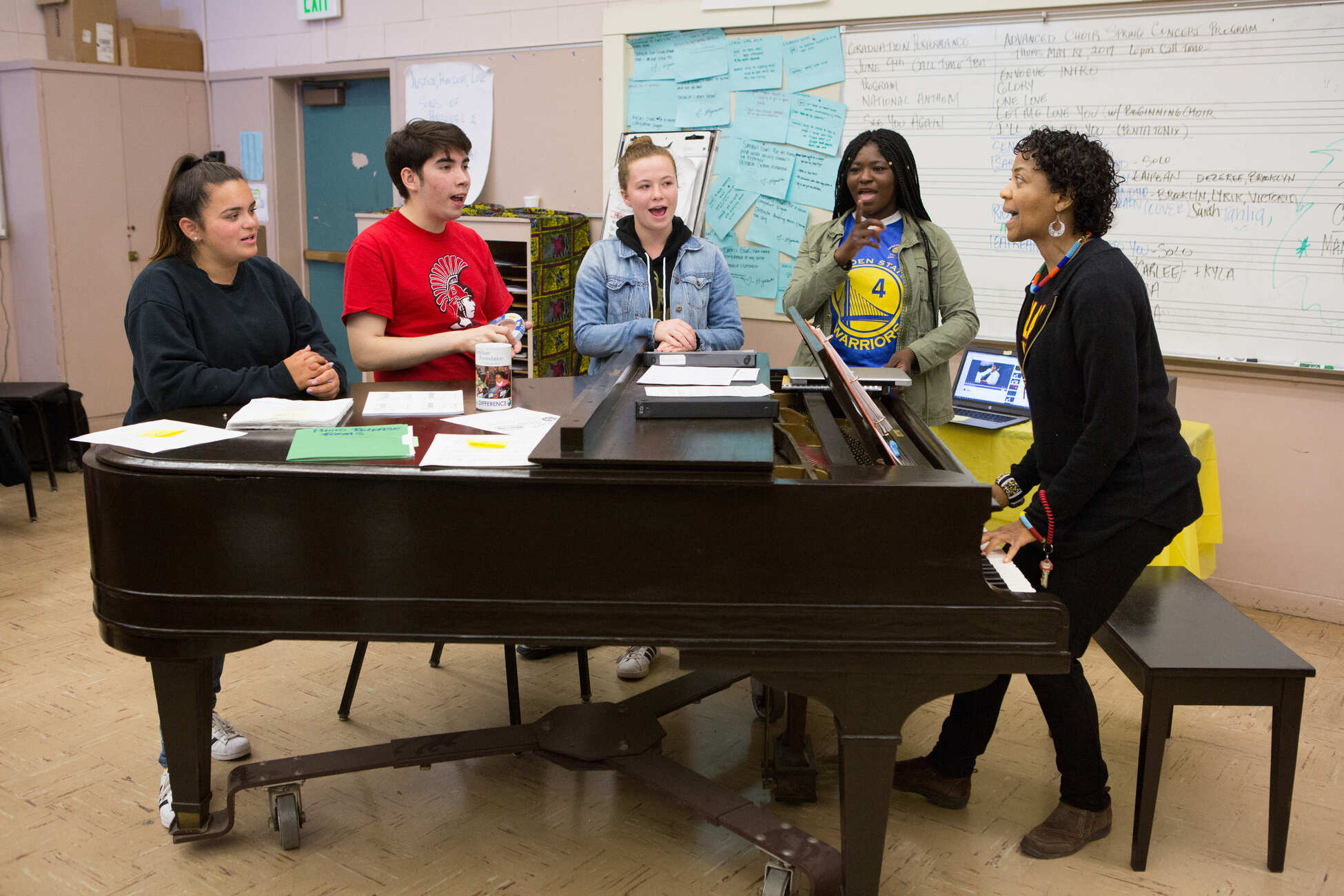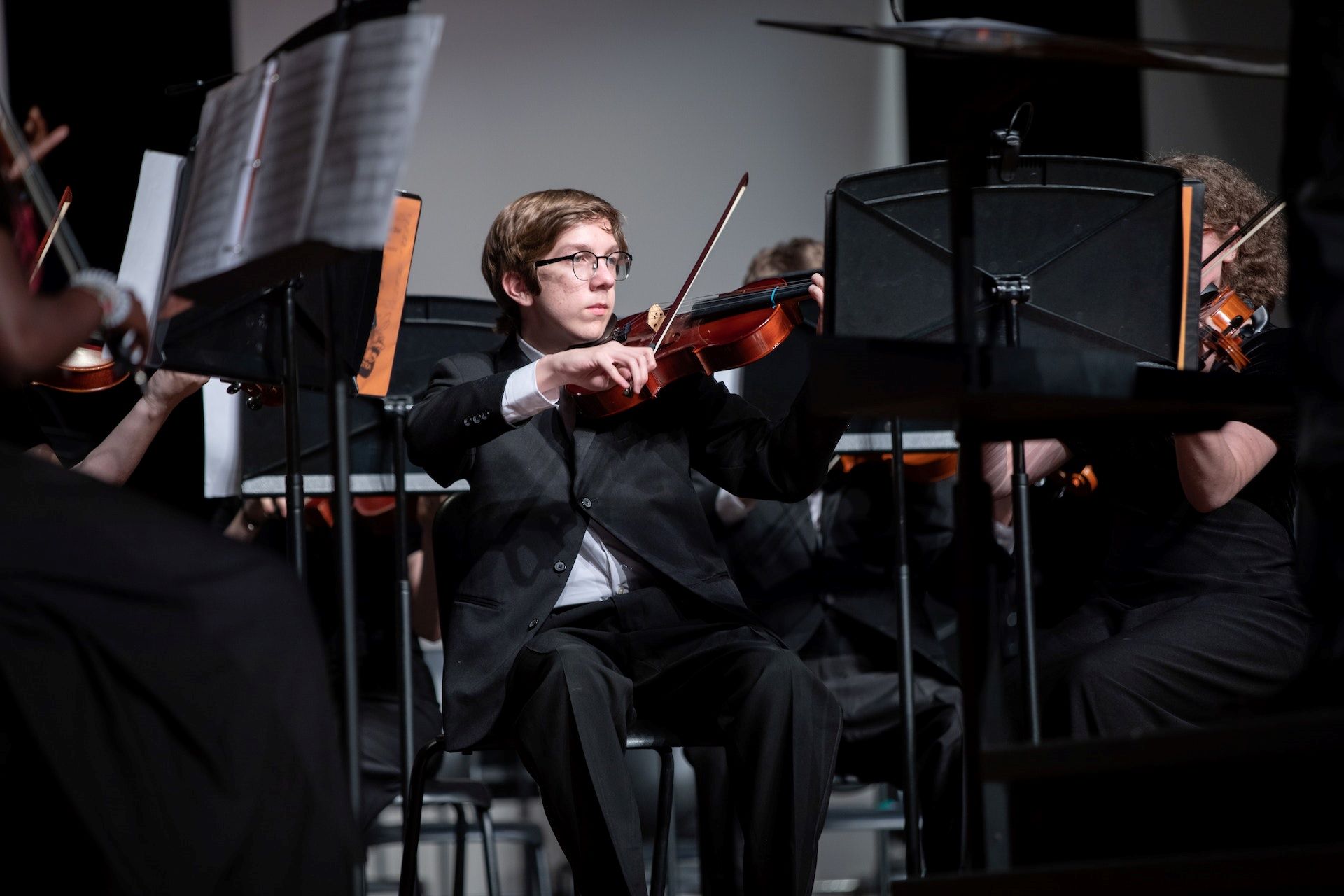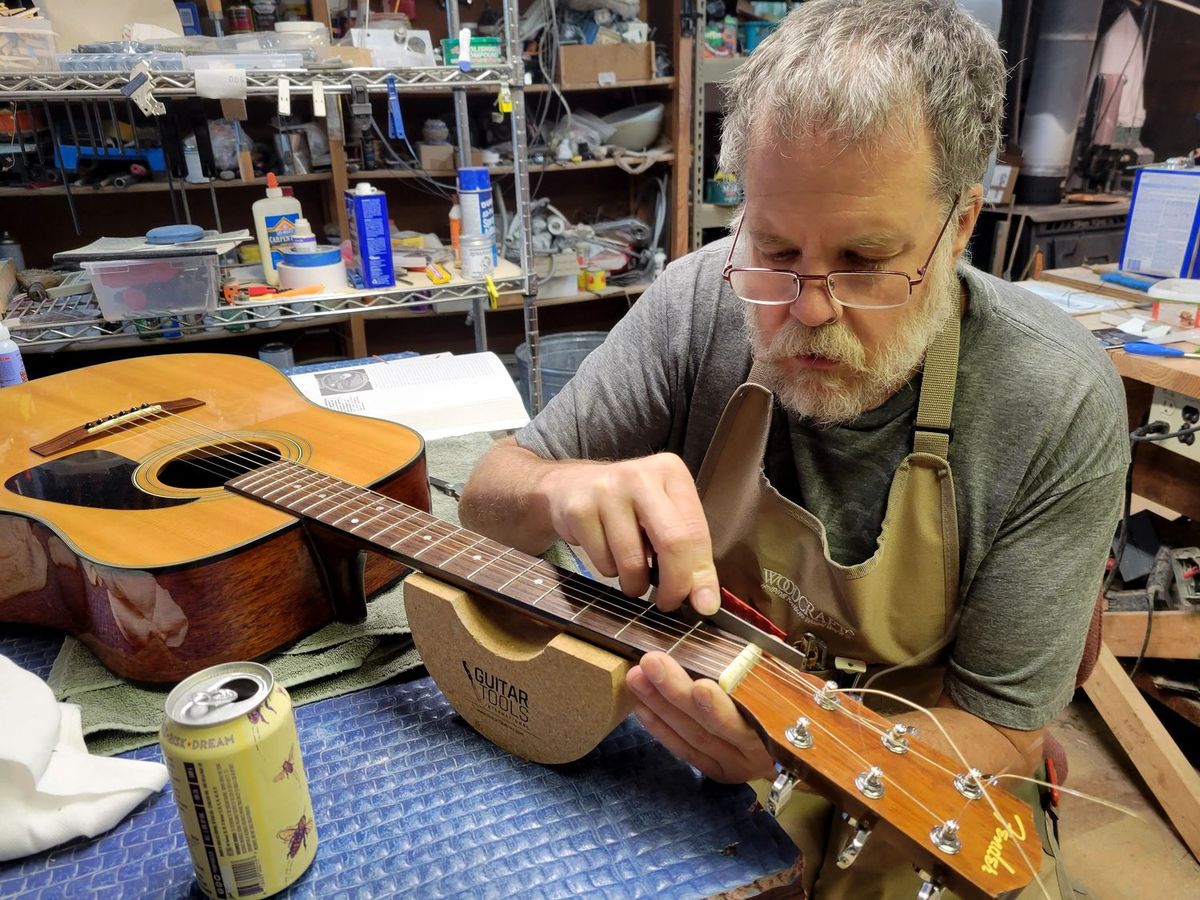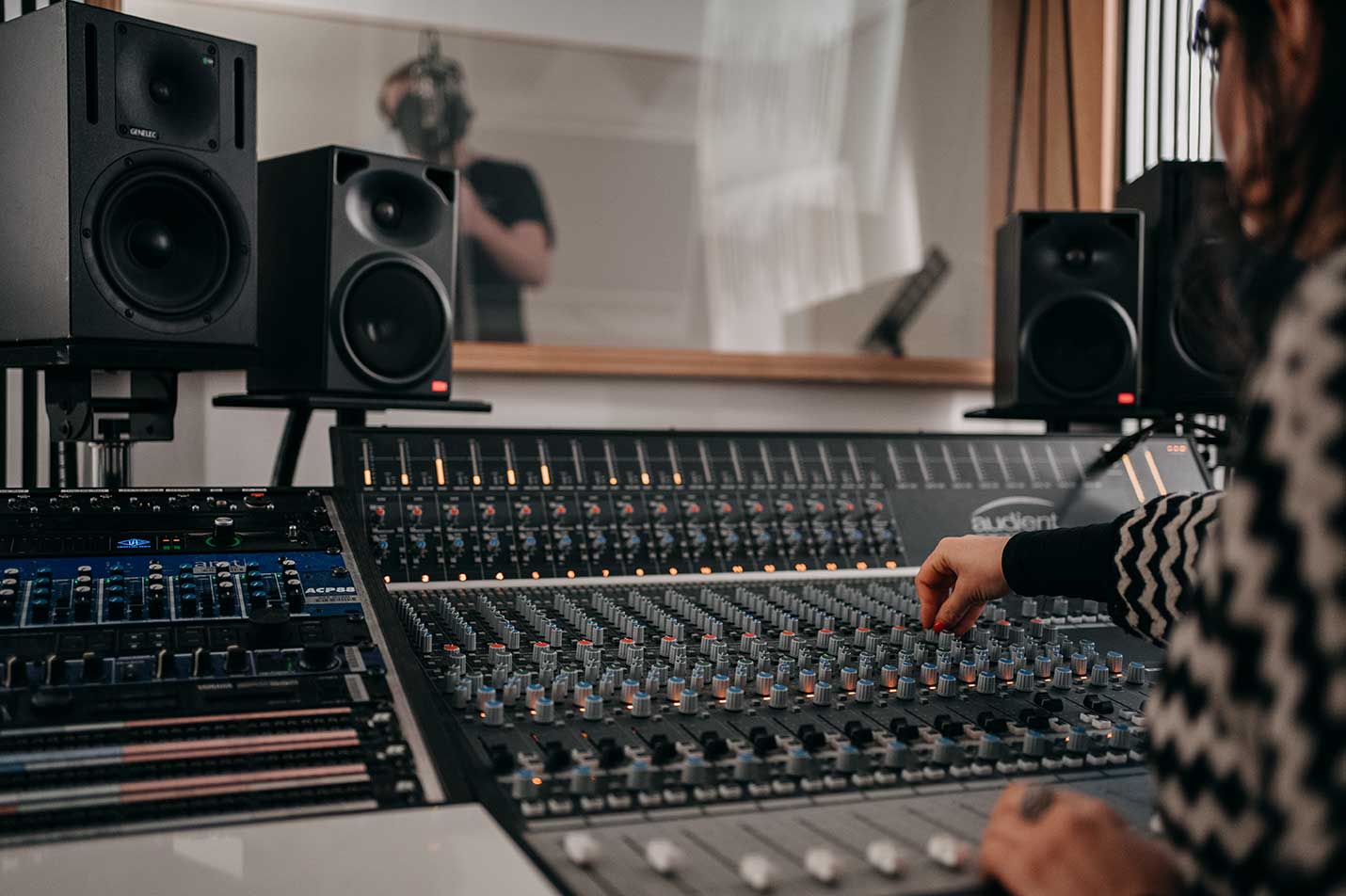Home>Production & Technology>Choir>How To Become A Choir Teacher


Choir
How To Become A Choir Teacher
Published: February 23, 2024
Learn how to become a choir teacher and inspire the next generation of musicians. Discover the skills and qualifications needed to succeed in this rewarding career.
(Many of the links in this article redirect to a specific reviewed product. Your purchase of these products through affiliate links helps to generate commission for AudioLover.com, at no extra cost. Learn more)
Table of Contents
Qualifications and Education
Becoming a choir teacher is an enriching and rewarding career path that requires a strong foundation in music education and a genuine passion for choral arts. Aspiring choir teachers typically pursue a bachelor's degree in music education or a related field, which equips them with the essential knowledge and skills to effectively teach and lead a choir program. Additionally, obtaining a teaching license or certification is often a prerequisite for securing a position as a choir teacher.
In the pursuit of a career as a choir teacher, individuals are encouraged to seek out reputable institutions that offer comprehensive music education programs. These programs are designed to provide students with a well-rounded understanding of music theory, vocal techniques, conducting, and music history. Through coursework and hands-on experiences, aspiring choir teachers develop the musical proficiency and pedagogical expertise necessary to excel in their future roles.
Moreover, gaining practical experience through student teaching or internships is invaluable for aspiring choir teachers. These opportunities allow individuals to observe seasoned educators, hone their instructional abilities, and gain firsthand experience in leading rehearsals, selecting repertoire, and managing a choir. By immersing themselves in real classroom settings, future choir teachers can refine their teaching styles and develop a deep appreciation for the nuances of choral instruction.
Continuing education is also paramount for choir teachers to stay abreast of the latest developments in music education and choral pedagogy. Pursuing advanced degrees or participating in professional development workshops enables choir teachers to expand their repertoire of teaching strategies, refine their conducting skills, and explore innovative approaches to choral instruction. Additionally, staying connected with professional organizations such as the American Choral Directors Association (ACDA) and attending conferences can provide valuable networking opportunities and access to a wealth of resources and support.
In essence, the journey to becoming a choir teacher involves a steadfast commitment to acquiring a solid educational foundation, gaining practical experience, and embracing lifelong learning. By investing in a robust education and continuously refining their craft, aspiring choir teachers can embark on a fulfilling career dedicated to nurturing the musical talents of future generations.
Musical and Vocal Training
Musical and vocal training serves as the cornerstone of a choir teacher's expertise, shaping their ability to impart knowledge and inspire vocal excellence in their students. This foundational training encompasses a multifaceted approach that encompasses both theoretical knowledge and practical skills, fostering a comprehensive understanding of music and vocal techniques.
Aspiring choir teachers embark on a journey of musical exploration, delving into the intricacies of music theory, sight-reading, and ear training. Through rigorous coursework, they develop a keen understanding of harmony, rhythm, and musical structure, enabling them to effectively analyze and interpret choral compositions. This theoretical foundation forms the bedrock upon which choir teachers build their pedagogical practices, allowing them to impart musical concepts with clarity and precision.
In tandem with theoretical studies, vocal training plays a pivotal role in shaping the proficiency of choir teachers. Through vocal instruction and practice, aspiring educators refine their own vocal abilities, honing their tone, range, and vocal agility. This personal journey of vocal development not only enhances their individual artistry but also equips them with firsthand experience in navigating the nuances of vocal production and expression. By immersing themselves in vocal training, future choir teachers cultivate a deep appreciation for the intricacies of the human voice, empowering them to guide their students towards vocal excellence.
Furthermore, conducting and rehearsal techniques form an integral part of musical and vocal training for choir teachers. As they learn the art of conducting, future educators delve into the nuances of gesture, tempo, and expression, mastering the craft of leading a choir with precision and artistry. Moreover, hands-on experience in leading rehearsals and conducting vocal ensembles allows aspiring choir teachers to refine their conducting techniques, develop effective rehearsal strategies, and cultivate a keen sense of musical interpretation.
In essence, musical and vocal training equips aspiring choir teachers with the knowledge, skills, and artistry necessary to excel in their future roles. By immersing themselves in music theory, vocal development, and conducting techniques, future educators lay a robust foundation for their pedagogical journey, poised to inspire and nurture the musical talents of their students.
Teaching Techniques and Strategies
Teaching techniques and strategies form the bedrock of a choir teacher's instructional prowess, encompassing a diverse array of pedagogical approaches designed to engage, motivate, and empower students in their musical journey. As choir teachers step into the classroom, they draw upon a rich tapestry of instructional methods and strategies to cultivate a dynamic and enriching learning environment for their students.
One fundamental aspect of effective choral instruction lies in the cultivation of vocal technique. Choir teachers employ a multifaceted approach to vocal development, guiding students in the refinement of tone, diction, breath support, and vocal agility. By integrating vocal exercises, warm-ups, and vocalises into their instructional repertoire, teachers nurture a foundation of vocal excellence, equipping students with the technical skills essential for choral performance.
In addition to vocal technique, choir teachers harness the power of collaborative learning experiences to foster ensemble cohesion and musical unity. Through the use of choral repertoire encompassing diverse genres and styles, teachers provide students with opportunities to explore the expressive nuances of music, develop a keen sense of musical interpretation, and cultivate a profound appreciation for artistic expression. Furthermore, ensemble-building activities, such as vocal blending exercises and section rehearsals, serve to fortify the collective identity of the choir, nurturing a cohesive and harmonious ensemble dynamic.
Moreover, the integration of technology into choral instruction has emerged as a pivotal tool for engaging and inspiring students. Choir teachers adeptly leverage technological resources to enhance the learning experience, utilizing audio-visual aids, digital music platforms, and recording technologies to augment rehearsal processes and facilitate student learning. By harnessing the power of technology, teachers create immersive and interactive learning environments, enabling students to explore choral repertoire, refine their vocal skills, and gain a deeper understanding of music theory.
Furthermore, the art of conducting serves as a cornerstone of choral instruction, as teachers employ expressive gestural communication and nuanced conducting techniques to guide the musical interpretation and phrasing of the ensemble. Through the cultivation of conducting skills, choir teachers imbue their students with a profound understanding of musical expression, fostering a collaborative and artistically vibrant choral experience.
In essence, teaching techniques and strategies encompass a multifaceted approach that integrates vocal technique, collaborative learning, technology, and expressive conducting to create a transformative and enriching choral learning environment. By embracing a diverse array of pedagogical approaches, choir teachers inspire and empower their students, nurturing a deep-seated love for music and fostering a lifelong passion for choral excellence.
Classroom Management
Classroom management stands as a cornerstone of effective choral instruction, encompassing a multifaceted approach to fostering a structured, nurturing, and harmonious learning environment. As choir teachers guide their students through the intricacies of vocal artistry and musical expression, adept classroom management strategies play a pivotal role in cultivating a cohesive and focused rehearsal atmosphere.
Central to successful classroom management is the establishment of clear expectations and routines. Choir teachers diligently outline behavioral guidelines, rehearsal protocols, and performance expectations, ensuring that students understand and adhere to the standards of conduct essential for a productive and respectful learning environment. By articulating these expectations with clarity and consistency, teachers lay the groundwork for a harmonious and disciplined choral setting, fostering an atmosphere conducive to musical growth and artistic exploration.
Furthermore, proactive behavior management techniques empower choir teachers to address potential challenges and maintain a positive rehearsal atmosphere. By implementing strategies such as positive reinforcement, proactive communication, and conflict resolution, teachers adeptly navigate the dynamics of the choral classroom, fostering a supportive and inclusive environment where students feel valued, respected, and motivated to excel. Additionally, the cultivation of strong teacher-student relationships forms a cornerstone of effective classroom management, as teachers prioritize open communication, mentorship, and personalized support to nurture a culture of trust and collaboration within the choir.
Equally vital to classroom management is the seamless organization of rehearsal logistics and resources. Choir teachers meticulously plan and structure rehearsals, ensuring that time is utilized effectively, repertoire is rehearsed comprehensively, and performance preparations are meticulously coordinated. Moreover, the strategic allocation of rehearsal time for vocal warm-ups, section rehearsals, and ensemble practice enables teachers to optimize the rehearsal process, fostering a balanced approach to vocal development and musical refinement.
Additionally, the physical arrangement of the rehearsal space plays a pivotal role in classroom management, as teachers strategically configure seating arrangements, acoustics, and visual aids to enhance the choral learning experience. By thoughtfully organizing the rehearsal environment, teachers create a conducive space for musical exploration, ensemble cohesion, and expressive creativity, fostering an atmosphere where students are inspired to engage wholeheartedly in the choral journey.
In essence, classroom management encompasses a comprehensive framework of behavioral expectations, proactive strategies, organizational proficiency, and environmental considerations that collectively cultivate a nurturing, disciplined, and artistically vibrant choral setting. Through adept classroom management, choir teachers foster an environment where students thrive, grow, and discover the transformative power of choral music.
Building and Leading a Choir Program
Building and leading a choir program is a multifaceted endeavor that requires vision, strategic planning, and adept leadership to cultivate a thriving choral community. As choir teachers embark on the journey of establishing and nurturing a choir program, they harness their pedagogical expertise, artistic vision, and organizational acumen to create a dynamic and enriching musical experience for their students.
At the heart of building a choir program lies the strategic selection of repertoire, a process that demands careful consideration of musical diversity, artistic relevance, and educational value. Choir teachers meticulously curate a repertoire that encompasses a rich tapestry of musical genres, styles, and historical periods, providing students with a comprehensive musical education that fosters artistic growth and cultural appreciation. By integrating a diverse array of choral compositions, teachers empower students to explore the expressive nuances of music, develop a deep understanding of vocal artistry, and cultivate a profound appreciation for the richness of choral literature.
Moreover, the cultivation of a supportive and inclusive choral community forms a cornerstone of building a choir program. Choir teachers prioritize the creation of a nurturing and collaborative ensemble dynamic, fostering a culture of respect, camaraderie, and artistic exploration within the choir. Through team-building activities, vocal blending exercises, and ensemble-building initiatives, teachers cultivate a cohesive and harmonious choral community where students feel valued, supported, and inspired to contribute their unique voices to the collective musical tapestry.
In tandem with building a choir program, adept leadership plays a pivotal role in guiding the ensemble towards artistic excellence and musical growth. Choir teachers lead by example, embodying a spirit of dedication, passion, and artistry that inspires students to strive for vocal excellence and musical mastery. Through expressive conducting, nuanced musical interpretation, and unwavering dedication to artistic integrity, teachers imbue the choir with a sense of purpose and artistic vibrancy, guiding students on a transformative musical journey that transcends technical proficiency and embraces the profound emotive power of choral music.
Furthermore, the strategic planning and execution of performances serve as a catalyst for the choir's artistic development and community engagement. Choir teachers meticulously prepare students for a diverse array of performance opportunities, ranging from school concerts and community events to choral festivals and competitions. Through comprehensive rehearsal planning, performance logistics, and artistic direction, teachers orchestrate transformative performance experiences that showcase the choir's musical prowess, foster a sense of pride and accomplishment, and forge meaningful connections with audiences.
In essence, building and leading a choir program entails the strategic curation of repertoire, the cultivation of a supportive ensemble dynamic, adept leadership, and the orchestration of transformative performance experiences. Through their visionary leadership and unwavering dedication, choir teachers create a musical ecosystem where students flourish, discover their artistic voices, and experience the transformative power of choral music.
Networking and Professional Development
Networking and professional development constitute integral facets of a choir teacher's ongoing journey to refine their craft, expand their professional horizons, and stay abreast of evolving trends in music education and choral pedagogy. Through proactive engagement with professional networks, participation in workshops, and continuous pursuit of advanced training, choir teachers fortify their expertise, nurture collaborative partnerships, and elevate their impact within the choral community.
Engaging in professional networks such as the American Choral Directors Association (ACDA) and local music educators' associations provides choir teachers with invaluable opportunities to connect with peers, mentors, and industry experts. By actively participating in conferences, workshops, and seminars, educators gain access to a wealth of resources, best practices, and innovative teaching methodologies. These interactions foster a vibrant exchange of ideas, enabling teachers to glean insights, refine their instructional approaches, and forge meaningful connections with fellow educators.
Furthermore, the pursuit of advanced training and professional development workshops empowers choir teachers to delve into specialized areas of choral pedagogy, vocal technique, and conducting. By enrolling in advanced courses, pursuing certifications, and seeking mentorship from seasoned professionals, educators expand their repertoire of teaching strategies, refine their conducting skills, and cultivate a nuanced understanding of choral literature. This commitment to continuous learning not only enhances their instructional proficiency but also inspires students through the infusion of fresh perspectives and refined expertise.
Moreover, collaborative partnerships with local music organizations, community ensembles, and professional musicians offer choir teachers opportunities to enrich their students' musical experiences. By fostering connections with local artists, composers, and music institutions, educators create immersive learning opportunities, guest artist collaborations, and performance engagements that elevate the artistic caliber of their choir programs. These collaborative endeavors not only enrich students' musical education but also strengthen the ties between the school's choral program and the broader musical community.
In essence, networking and professional development empower choir teachers to transcend conventional boundaries, expand their professional horizons, and infuse their choral programs with a rich tapestry of artistic influences. By actively engaging with professional networks, pursuing advanced training, and fostering collaborative partnerships, educators invigorate their instructional practices, inspire their students, and make enduring contributions to the vibrant tapestry of choral music education.











